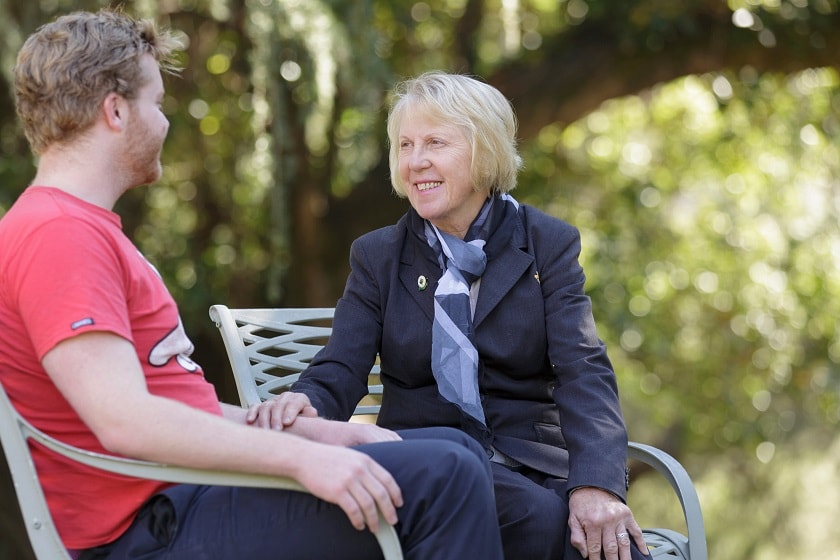World Mental Health Day
10 Oct 2017

This year, St John of God Foundation is supporting World Mental Health Day by sharing messages about the importance of recognising and raising awareness for mental health.
The Foundation supports a range of mental health services provided by St John of God Health Care.
Three out of every four Australians will experience a potentially traumatic event in their life. Think of those closest to you – it could be a member of your family, your significant other or even a close friend.
What makes this statistic even more startling is that about one in 10 of these will develop Post Traumatic Stress Disorder (PTSD), while others may suffer from a related mood disorder.
Bringing together both clinical and academic evidence to improve understandings and community awareness of trauma, mental health and recovery, St John of God Health Care supports research into PTSD.
Being undertaken in conjunction with the Black Dog Institute and the University of New South Wales’ School of Psychiatry, this research is focused on applying on an evidence-based approach to mental health promotion and early intervention for people at risk of developing trauma-related mental health difficulties.
With one of the longest running PTSD programs in the country, St John of God Richmond Hospital has worked with veterans and first responder populations for almost 20 years.
Professor Zachary Steel holds the Professorial Chair of Trauma and Mental Health at St John of God Health Care. With an extensive career spanning 25 years working and researching in fields of research exploring mental health, clinical and counselling psychology and epidemiology, he is among the key players in this research.
According to Professor Steel, who has extensive experience working with refugees and now works with veterans and first responders, growing evidence reveals that often, the things that affect first responders and veterans don't just lie with witnessed traumas.
“There’s a growing understanding of the role of moral injury in causing some of the PTSD responses,” Professor Steel said.
“The field used to understand PTSD is all about threat and life threat, but we’re actually understanding now that sometimes it’s not threat that causes this injury, it’s shock.
“Police for example, might be very resilient to a lot of the negative things they encounter, but when they encounter an accident involving children, it’s that kind of shock that can bring about a lot of the harm.”
"Whilst the neuroscience and research behind the past traumatic experiences haunting individuals in nightmares or flashbacks is strong, further research has also found that certain versions of PTSD in a clinical setting can also be related to future threats.
“This is often when people face future threat or uncertainty, we see that for instance for refugees that might be facing deportation, we can also see it in other groups, such as women that are in situations with domestic violence who are facing a potential threat.
“The PTSD mightn’t even be a disorder then, it might actually be a way in which the body is communicating you are under extraordinary threat – the symptoms can be very severe.”
Working collaboratively with exercise physiologists who are transforming the face of mental health in Australia, physical activity based interventions are being integrated into mental health care across Australia as, according to Professor steel, mental health has traditionally been trapped in only treating the mind.
“If you don't have mental health, you can’t have physical health,” Professor Steel said.
“St John of God Health Care is playing a leading role in promoting this – we had the first clinical trial of exercise PTSD in the world conducted here at St John of God Richmond hospital.
“For example, we have just finished a study looking at the way to see how exercise can be used to manage drug cravings rather than having to use other drugs – the results are very powerful.
“We’ve got a gym, an exercise physiologist, a nutritionist and we’re trying to get that across other sectors of St John of God Health Care – we are really seeing that promoting physical health promotes mental health too.”
You may be interested in
